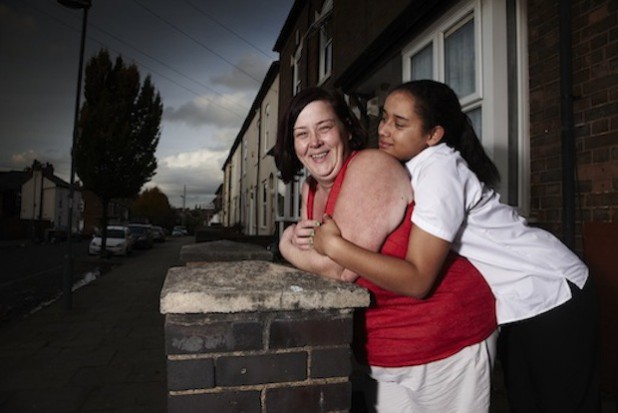My Saturday morning would not be complete without Amanda Platell’s delicious put-downs in the Daily Mail, usually aimed at people who richly deserve them. But today she identifies a target that doesn’t. Her piece, “White Dee, and how the Left lost the war on welfare,” argues that Ch4 made Benefits Street to “provide a powerful argument for the deserving poor” but ended up awakening a nation to the abuses of welfare. She’s wrong: Ch4 knew what it was doing. And only Ch4 would have had the guts to do it.
Benefits St was indeed a landmark in the debate; she’s right about that. But wrong to suggest that it somehow backfired on Ch4. Its documentaries are distinguished by picking controversial topics that the BBC shies away from: Ch4 lives up to its remit of challenging, rather than reinforcing, the consensus
For example, a few years ago, Ch4 commissioned a documentary entitled The Great Global Warming Swindle. It did so knowing it would spend months facing an onslaught from the green lobby groups who try to police the debate by declaring their opponents’ opinions to be illegitimate. This works with the easily-cowed BBC: CoffeeHousers may remember that they forced the Beeb to apologise for allowing Nigel Lawson on the Today programme to discuss climate change. This very apology has a chilling effect: BBC researchers know not to ask people like Lawson on again, or risk getting their boss into trouble.
A few years ago, the BBC asked John Humphrys to present a superb and prescient BBC1 documentary on the future of the welfare state, flagging up the fact that public were turning against it. The left went bananas, and then attacked the BBC with various spurious complaints about impartiality, balance etc. It worked. Appallingly, Humphrys was then summoned to a BBC star chamber and asked to explain himself before a panel of inquisitors; the BBC Trust even found him guilty. The BBC is a massive bureaucracy, ergo hugely sensitive to criticism from lobby groups – and buckles, if the onslaught is great enough. Again, this sends a message in the BBC: let’s avoid subjects likely to generate such complaints. I know of BBC presenters who have completed a documentary, only to find controversial lines torn from the final edit by a fearful politburo.
So BBC bias doesn’t really come in the form of reporting. It comes in the form of the BBC running away from certain arguments, because its bureaucracy thinks them vulgar and peripheral (Euroscepticsm, concern about immigration etc) and because it lives in fear of the inevitable complaints. Ch4 has no such fear.
Dorothy Byrne, its current affairs chief, commissions her documentaries by asking: “where’s the fight? And how can we join it?” She likes to walk into the fire, and Ch4 so with Benefits St. The pro-welfare camp went ballistic, the row escalated to a degree never before witnesses. The BBC ran discussions asking how Benefits St was ever allowed on air. All it did was let the camera roll – and find, in White Dee, an embodiment of the UK benefits problem: good people, trapped in a bad system. It not just challenged but blew apart all kinds of stereotypes, which is why so many people went nuts.
Amanda Platell is right to say that it was hugely consequential – but wrong to say that Ch4 was appalled. It did exactly what Ch4 hoped it would do: open a window on an ignored world, and express the welfare conversation in terms of real people in real communities. Benefits St did what many public service documentaries aspire to do but few ever achieve: it actually changed the conversation. The BBC would never tread on such territory. If it wasn’t for Ch4, gritty social documentaries of this type would never be made. Benefits St would never have been made. The Great Global Warming Swindle would never have been made. Nor Richard Littlejohn’s brilliant Ch4 documentary on Islam’s role in the rise of British anti-Semitism.
Next week, Ch4 Dispatches will release a film about Isis that James Delingpole thinks stands on a par with John Pilger’s expose about Cambodia’s killing fields (read his review here). In his words, it’s “television at its most unmissable.”. And served up by by Ch4, a hugely successful public service that widens the parameters of debate and costs the taxpayer nothing.







Comments